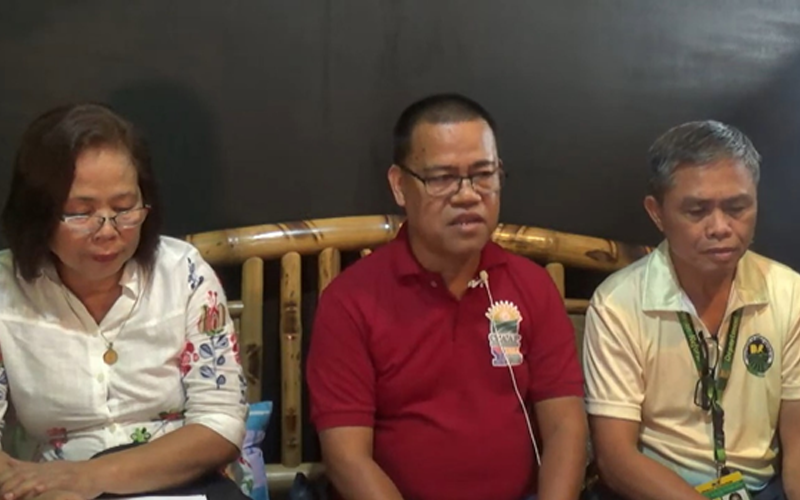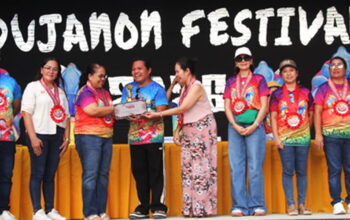
FINALLY, after decades of studies on how to improve the land reform program, agrarian reform beneficiaries could get their individual and not communal titles of their properties anytime soon.
This as the Department of Agrarian Reform (DAR) accomplishes over their target for the preparation of the final transfer of these properties to their final farmer owners.
Of the target 2,100 hectares of farmland readied for field validation in preparation for the parcelazation to individual titles, we have accomplished 2,704 hectares, reports Dr. Ronald Pumatong, Bohol Agrarian Reform Officer.
So far, so good, he comments, during the recent Kapihan sa PIA, at the PIA studio, and aired live over DyTR, PIA Bohol youtube and facebook accounts.
Pumatong, along with Engr Leonard Cagampang and Corazon Noroño, came to the radio forum on air to disseminate the information about another government program through the DAR which now allows the individual agrarian reform beneficiary to own up a clearly-delineated farm as stated in his own individual titles.
Through the Support for the Parcelazation of Lands for Individual Titles (SPLIT), the previously issued collective certificate of land ownership awards (CLOA) would now be partitioned for award to individual beneficiaries, explains PARO Pumatong.
The 2,323 agrarian reform beneficiaries tilling parts of the 2704 hectares issued to them in the recent years, are now on their way towards owning individual titles split from the communal lands awarded to them by the government for being in food production.
The awarded CLOAs then were not technically delineated as to who works on that particular lot, that farmers later realized part of what they farmed does not anymore belong to their awarded lots.
Moreover, while some farmers are diligently involved in food production, others in the same awarded CLOA work only until they want, compromising their over-all harvests.
Still to some, despite the land award, without a secure instrument assigning them of the lot they till, their tenure is actually teetering in the balance.
And notwithstanding the DAR accomplishment on the vast tracts of lands awarded, food production still remained to be a challenge.
As the government sees issues like these, awarding patches of lands to individual farmers is the next logical thing.
Giving out collection CLOAs indeed hastened the process of giving out the lands to farmers, but farmers could not really own up patches which they can call their own, while the collection CLOA prevents them from investing in improving the land because the collective CLOA can not be put up as loan collateral, adds Pumatong.
He also shared that a project management office for SPLIT has already been moving around Bohol to validate and inspect areas with communal CLoAS to be included in the SPLIT Program.
The PMT and its field validation teams have also tracked the inherent legal and technical problems which have plagued the country’s flagship social reform program.
Even then, Bohol still managed to put up 325 individual titles in computerized form for 217 agrarian reform beneficiaries, Pumatong said.
These were part of the 642 hectares of the 656 agrarian reform beneficiaries which the DAR has processed to the Register of Deeds for eventual release of computerized titles, he summed up. (RAHC/PIA-7/Bohol)


